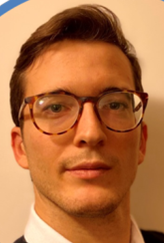Joint with ISPRS (WGIII/8)3rd Workshop on Agriculture
New challenges are foreseen in the domain of remote sensing for agriculture. Agriculture plays a key role not only in the balance of food production, which is a key part to social security, but also in local interaction with the environment. From feeding the world population to taking care of the landscape and assessing the impact on water uptake and nutrient in soil, agriculture is either directly or indirectly impacting everybody. Remote sensing provides a data-rich stream of data that must be processed efficiently into knowledge and decisions. Processing also impacts energy consumption, as new AI algorithms provide added accuracy and velocity in processing, but to a high energy cost. New and improved remote sensing approaches in the realm of agriculture will be presented and discussed in this workshop.
List of topics
We welcome contributions that address challenges related to remote sensing in agriculture. In particular on, but not limited to, the following topics:
- EO-based Services and Products for Agriculture
- Support of risk modelling and management in agriculture
- Direct and indirect economic benefits of EO products and services in agriculture
- EO data integration with other services (e.g. agro-meteo networks, phenological networks etc…)
- Crop mapping for yield monitoring and optimization
- EO data for mitigation of environmental impact in farming activities – e.g. monitoring of the emissions of particulate matter and gases, reduction of impact from treatments, optimization of water usage etc….
- Crop damage assessment for multiple purposes – insurance, economic loss estimation, etc…
- EO for supporting Common Agricultural Policies (CAP)
- Standardization and Certification of Data Processing for EO-based agricultural applications
- Accuracy (spatial and semantic) requirements for EO end-products to be used in Agriculture
- Standardized procedures for quality assurance/quality control (QA/QC) about EO-derived products
- Present and ongoing strategies for QA/QC from institutional subjects, Agencies and Companies; how do they face this topic?
- Policies and regulations from national and international Agencies that emanate mandatory guidelines and laws
- Automated methods for fast assessment of EO data quality for agricultural applications
- Innovative methods for quality improvement of EO-derived products for agriculture
Keynote Lecture: Challenges and recommendations for leveraging remote sensing for food security

Filippo Sarvia – Food and Agriculture Organization of the United Nations (FAO)
The global population is expected to reach 9.8 billion by 2050, necessitating a significant increase in food production to meet growing demands. However, limited land and water resources, climate change, and the increasing frequency of extreme weather events threaten agricultural production each year. Remote sensing is a powerful technique that supports food security by enabling large-scale, high-frequency agricultural monitoring. In alignment with the Food and Agriculture Organization’s (FAO) mandate and Sustainable Development Goals (SDGs), particularly SDG 2—Zero Hunger, remote sensing contributes to land cover and land use classification, crop mapping, yield estimation, drought assessment, and early warning systems for agricultural risk management. However, several challenges hinder its full potential, including data accessibility restrictions, high processing costs and time requirements, inconsistencies in spatial and temporal resolutions, atmospheric interferences (e.g., cloud cover), and the need for extensive ground-truthing to improve classification accuracy during training and validation phases. Addressing these challenges requires coordinated efforts, research and capacity development in low and middle income countries, where agricultural monitoring is more critical and yet complicated by limited financial and technical capacities. Strengthening collaborations between research institutions, policymakers, and international organizations will be important to optimizing remote sensing applications for global food security monitoring and policy support.
Scientific Committee of the Workshop
Sarah Asam – Deutsches Zentrum für Luft- und Raumfahrt (DLR), Germany
Mirco Boschetti – CNR-IREA, Remote Sensing Unit, Italy
Anatol Garioud – IGN | SIMV / DEPARTEMENT D’APPUI A L’INNOVATION, France
Ursula Gessner – Deutsches Zentrum für Luft- und Raumfahrt (DLR), Germany
Antonino Maltese – University of Palermo, Italy
Luka Mamic, University of Rome, Italy
Enrico Borgogno Mondino – University of Turin, Italy
Julien Morel – European Commission, Joint Research Centre
Francesco Pirotti – University of Padova, Italy
Marcel Schwieder – Thünen Institute of Farm Economics, Germany
Organisers
Francesco Pirotti – francesco.pirotti (at) unipd.it
Enrico Borgogno – enrico.borgogno (at) unito.it
